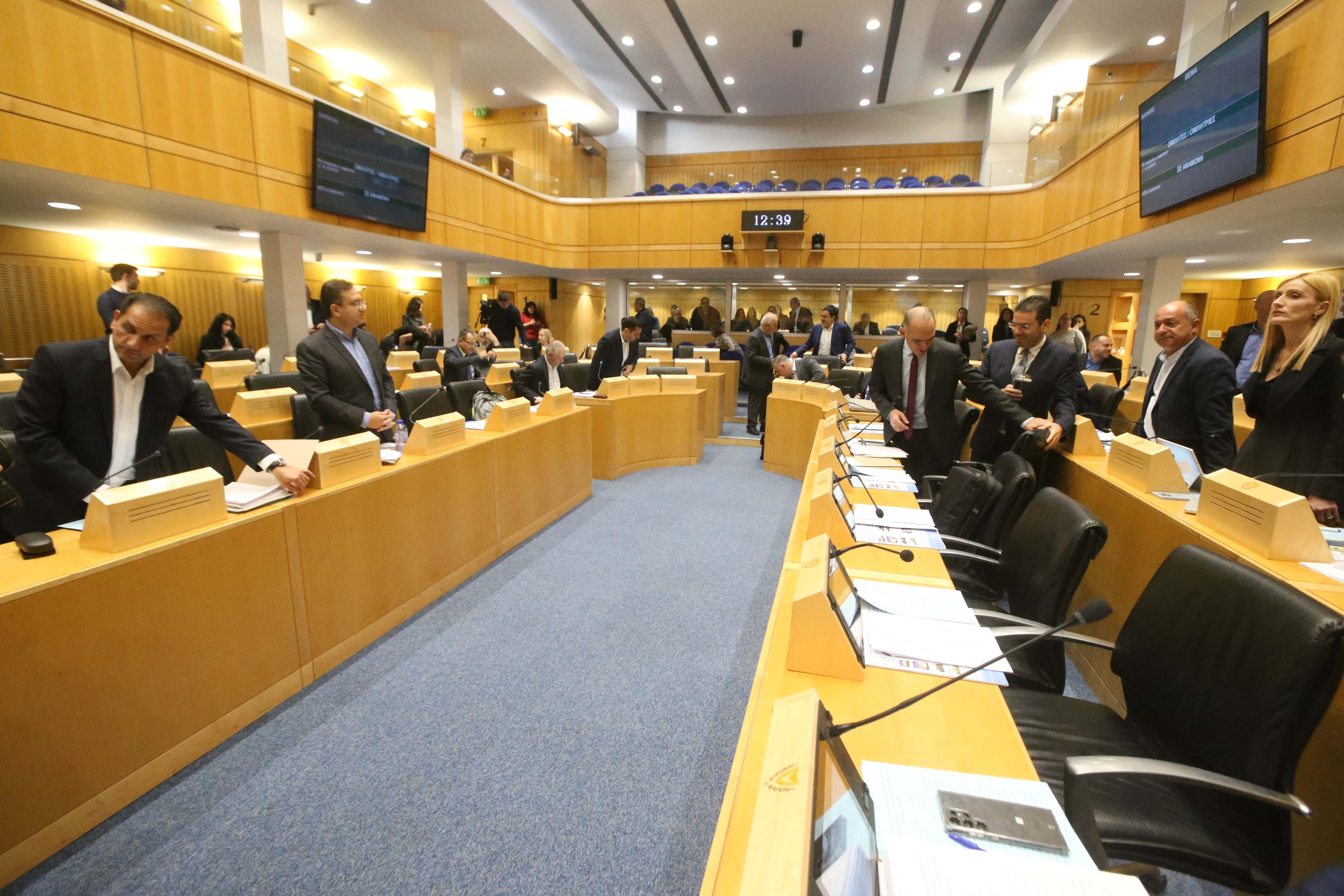A deadlocked vote in parliament on Thursday spelled the defeat of a bill that sought to impose a tax on the ‘windfall profits’ of banks, with the debate taking up most of MPs’ time during the last session of the plenary for the year.
The debate on the proposed 5 per cent tax on bank profits got underway at around 2pm and dragged on until 6pm, when the vote finally took place.
Opposition Akel, who had tabled the bill, had framed the issue as ‘Either you’re with the people, or you’re with the banks’.
But that didn’t prove enough to sway enough MPs. The vote was tied at 25=25, with four MPs abstaining.
Akel, Elam, Edek and the Greens voted in favour, while Disy joined with the pro-government parties – Diko and Dipa – in voting against.
Earlier, Elam had called for a postponement of the vote, but their proposal was rejected.
Opposition Disy, which had led the charge against the legislation, dismissed Akel’s slogan as too simplistic.
The communist party had said this was parliamentarians’ chance to show “whether they serve society or the banks”.
But hitting back, Disy called this “a simplistic and binary perception of the economy.”
It said that Akel had already implemented this approach when it was in power – from 2008 to 2013.
“And they ended up destroying society, and the banks, and the state,” the party argued, alluding to the 2013 financial meltdown.
Disy MP Savia Orfanidou said Akel’s main argument for the bill did not hold water.
Akel said that banks were taking advantage of the spread between lending and deposit rates – making a killing in the process.
But Orfanidou said taxing banks’ profits would not help close that gap. On the contrary, it would give lenders “an alibi” to delay lowering their lending rates.
During the week, and in an apparent bid to impart a ‘people-friendly’ image to stave off the tax, commercial lenders had announced various measures that effectively led to less expensive borrowing.
Bank of Cyprus said it would start subsidising by 1 per cent, for the first three years, the interest rate on loans related to a government housing scheme for mountain areas.
And Hellenic Bank announced a housing loan with a fixed interest rate of 2.95 per cent for the first three years.
The cabinet meanwhile rolled out a scheme subsidising interest rates for housing loans with means-testing.
According to Akel, the bank tax would have raised €100 million for tax years 2024 and 2025. The revenues would go toward supporting vulnerable groups and borrowers – such as subsidising housing schemes or subsidising lending rates.
The party called it a one-off ‘solidarity levy’ aimed at providing some relief to people hit hard by rising inflation.
Perhaps Akel’s pitch also suffered from bad timing, as on the same day, the European Central Bank (ECB) moved to cut interest rates for the fourth time this year.
The ECB settled on a reduction of 25 basis points, taking its deposit rate – the benchmark for borrowing costs across the 20-nation currency bloc – to 3 per cent.
“The disinflation process is well on track,” ECB President Christine Lagarde later told a press conference in Frankfurt.







Click here to change your cookie preferences